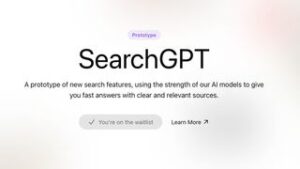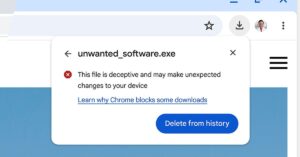/cdn.vox-cdn.com/uploads/chorus_asset/file/24449795/STK140_Mastodon_K_Radtke_01.jpeg)
Mastodon has been one of the biggest beneficiaries of Twitter’s ongoing meltdown, and since I started seriously using it late last year, it’s won me over. While I still use Twitter for monitoring news and talking to the occasional source, Mastodon is my new home for shortform posting. But Mastodon has one significant problem: it’s very annoying to find things I like.
I’m not talking about “discoverability” in the sense of some tailored suggestion algorithm. I mean that by design, information on Mastodon’s many servers is diffuse and relatively obscure. Back on Twitter, I kept several columns of search terms open — some for serious topics I was covering, some for personal interests like my favorite games, all of them a potential gateway to an interesting new corner of the service. Mastodon deliberately disallows plaintext search, and despite some attempts to devise an opt-in system for it, the main alternative so far is hashtags.
Mastodon lets you search for hashtags or keep columns open to track them. In addition to basic topic headings like #politics or #music, people write posts with tags like #LawFedi or #lawstodon for legal posts, #introduction for people joining the service, or #CatsOfMastodon for… you probably get the idea.
Unfortunately, I hate in-post hashtags.
Hashtags, as they appear on platforms like Twitter, Instagram, or Mastodon, are kind of a mess. They clutter up posts and consume valuable character count — which is less of an issue on Mastodon than Twitter, thanks to the former’s longer character limit, but still very much present. They appear as clickable hyperlinks, which makes them read as more important and prominent than the actual text of the post, which is exactly the opposite of their intended purpose. And they can pose serious annoyances for accessibility tools like screen readers, both because they add a long list of extra words and because they can render as #longincomprehensibletextstrings (that’s “long, incomprehensible text strings”) if people forget to #CapitalizeEachWord.
#please #stop #making #me #do #this #in #posts
On top of all that, in-post hashtags feel thirsty. After a decade of Twitter and Instagram, I associate them firmly with spammers and #blessed clout-chasing thinkfluencers, #shoehorning that #pound #symbol into the #middle of #sentences to reach more #eyeballs. On Mastodon in particular, you may also have to add lots of different variations on a single topic hashtag, in case there’s not one universally accepted term — which just exacerbates the sense that you’re looking at spam.
All of which contrasts starkly with a place I find hashtags entirely natural: Tumblr.
Tumblr is somewhere between a social network and an old-school blogging platform, and like most major blogging tools, every post has a dedicated section for freeform category tags. The tags typically appear in a smaller, lighter font under each post, visible but tastefully separated. You might tag a post with the name of a loose topical community like #writeblr, the name of a fandom or hobby, or an internal filter that helps people navigate your blog. (Tumblr hashtags also serve some much quirkier purposes, but those are fairly specific to its site design and culture.) Similar to a Mastodon hashtag search, you can subscribe to tags and find people who aren’t already in your network — but because Tumblr’s interface suggests you add tags, they feel less awkwardly self-promotional and are (in my experience) far more widely used. Oh, and you can put spaces between the words.
It’s a system I would love to see at least considered for Mastodon, and fortunately, I am not the first person to suggest it. The operator of the popular Fedi.Tips account, which serves as many people’s introduction to Mastodon, recently submitted an official request to separate tags from posts. “Mastodon’s hashtag search system is pulling people in totally incompatible directions,” the request wisely notes. “Mastodon should have a WordPress-style or Friendica-style method for listing tags separately from the content of the post, with a separate character limit for the tags.”
I’m sure there would be downsides and unintended consequences to this, but so far, there’s support for the idea in the submission’s responses. Some point out that other decentralized systems (including Friendica, another part of the decentralized fediverse) have implemented separated hashtags. Others note that while it could have the greatest effects for users of screen readers, it might improve the user experience for everybody. Until somebody figures out what search might look like on Mastodon, it’s my best shot at a version of the platform that feels more navigable. And above all, I might feel less cringey about tagging pictures of my cats.





